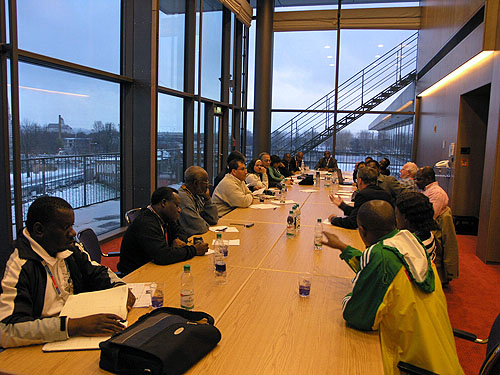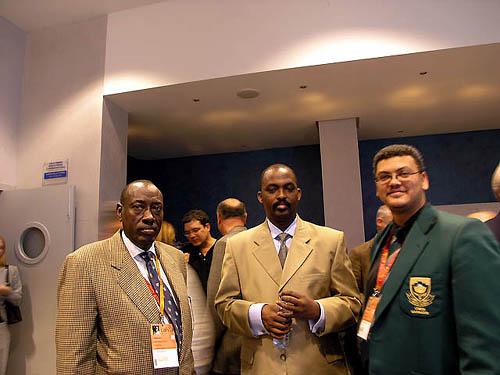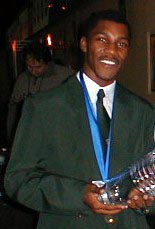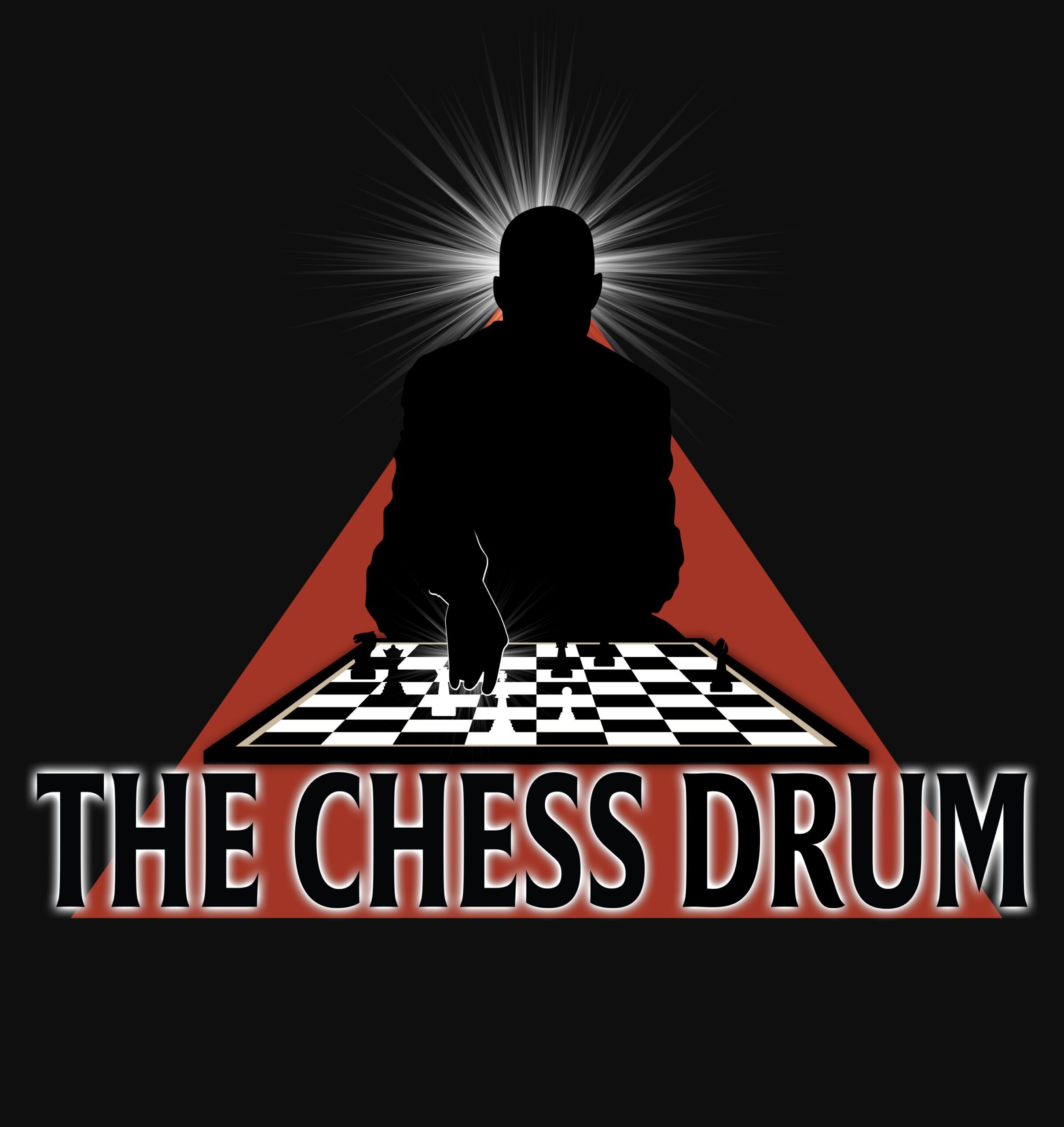Africa: Too Much Voting Power in FIDE?

In the upcoming election for FIDE President, there has been a lot of talk about the voting structure of one-nation, one vote. This idea is in line with the democratic ideals of general bodies, but seems to have met the ire of chess pundits and commentators. For the past two campaigns there has been the question of whether smaller federations should have an equal number of votes as larger federations.
A controversy unfolded when the Kirsan Ilyumzhinov camp went back to 2006 and found these words by Anatoly Karpov:
“According to FIDE regulations, only FIDE delegates representing the National federations can officially participate in the elections and take decisions of other precise issues at the FIDE General Assembly. One country-one vote, despite the number and level (I mean Grandmasters) of the chess players. I always thought it would be good to set up a “security council” Those federations whose best chess players are more likely related to the fight for the World Champion title should be given greater importance.” (see article)
The 2010 Karpov campaign asserted that these words were taken out of context. It appears as if Karpov is saying there should be some regard for more influential federations and professional chess. Most will agree that more attention needs to be paid to sponsorship of professional events and raising the public profile of chess.
Perhaps he is suggesting a separate entity in addition to the General Assembly. There certainly will not be an agreement for a “Security Council” to replace the General Assembly of chess nations. The lack of focus on the interest of professional players is what brought about the founding of the Association of Chess Professionals.

African Continental Meeting at the 2008 Olympiad in Dresden, Germany.
Photo by Daaim Shabazz
What exists now is a system where the majority consists of smaller federations giving them a “bloc advantage.” This is assuming that all of these federations (primarily in Asia, Africa, Middle East, Latin America and the Caribbean) vote as one bloc. This rarely happens in any orchestrated fashion. Nonetheless, African federations are viewed as undeserving of their fundamental right despite being full dues-paying members.
“When Africa is neglected until the FIDE elections every four years, they are then considered corrupt or gullible for accepting services that should have been rendered all along. This is unfair.”
In New in Chess (2010/5), there was a piece in Nic’s Cafe about the FIDE voting structure.
At the elections in Khanty-Mansiysk the vote of the United States will carry the same weight as Zambia’s.
In a essay by Arne Moll,
A vote from a country like Gabon counts as strongly as the vote from the USA, so the big question is what all other countries will do at the FIDE congress? (see article)
The implication is that Zambia and Gabon should not have as much voting power as the USA. There are countless other African examples on blogs and discussion groups. It appears to be an “insert African country” format. Why is there always the tendency to use African nations in these examples? In fact, large chess federations are no shining examples to follow. In recent memory, we have had turmoil and corrupt practices among a great number of strong chess federations not to mention the recent internal divisions created during the FIDE elections.
Nations, big and small, are divided, suing each other and there is tremendous internal discord. When nations within Africa become scapegoats for what is deemed a flawed system, then chess has failed in championing the virtues of democracy. When Africa is neglected until the FIDE elections every four years, they are then considered corrupt or gullible for accepting services that should have been rendered all along. This is unfair.

FIDE Delegates at 2004 Olympiad in Calvia, Spain:
(L-R) Enoch Barumba (Uganda), Rugema Ngarambe (Rwanda), Lyndon Bouah (South Africa).
What shall their votes be worth??
Photo by Daaim Shabazz
There was the essay written by Niels Lauritsen, a Danish chess organizer based in Malawi. The essay aimed to bring accountability to the FIDE voting structure. It was motivated by his experiences in Africa so he felt compelled to bring light to these issues. He proposes an account of legitimacy within a set of criteria. There is the implication that developing regions (especially Africa) are the main ones violating the sanctity of the vote.
Lauritsen states,
I know several chess federations who cannot currently fulfill even one of the above-listed criteria or bullets. And there are some who can only scrape through on one or two of the bullets only. Yet these federations, without recorded members, without accountability, without vision, trod to the FIDE assembly and vote every four years, almost en block, to the increasing anguish of many big federations who wish for higher standards. (see article)
Notice Lauritsen’s point, “…big federations who wish for higher standards.” Yet we have a chess world at various levels of turmoil since 1972… and it is essentially run by big federations! What is not realized is that only a small percentage of federations would meet the criteria of what Lauritsen deems a “proper chess federation”. It does not mean his proposal is a bad one and may be constructive, but to continue to single out destitute federations as unworthy of voting power is unfair. Who are we to blame when FIDE only pays attention to Africa every four years? Therein lies the conundrum. It is clear that the voting structure is not the main problem in this issue.
The Olympiad is a showcase of chess success showing that chess has reached every single corner of the globe… from the electric streets of Shanghai, to the cafes of Latin America, to barbershops of the U.S. We should be proud of the successes of players such as GM Amon Simutowe who developed with few resources and is a national hero. In fact, with his title, Zambia has as many Grandmasters as Ireland and Venezuela and more than several well-organized federations.

IM Robert Gwaze celebrates his 9-0 gold medal run at the 2002 Olympiad in Bled, Slovenia. Copyright © 2002 Barbados Chess Federation.
IM Robert Gwaze’s gold medal in the 2002 Bled Olympiad stands as a crowning achievement for Zimbabwean chess. GM Ahmed Adly winning of the 2007 World Junior Championship was another first for Africa. These accolades are what African federations what to see.
Yes… developing federations need to get their house in order as do the larger federations. More than promises and favors, they want to see progress. Let us hope that the next administration will honor this wish and not wait until another four years before knocking on Africa’s door. African federations have every right to make their voices heard with their votes… and they shall.


In the New In Chess article (2010/5), the editor made a reference to Afghanistan, Haiti, Kyrgyzstan, Libya, Myanmar, Sudan, Turkmenistan and Yemen sarcastically calling them “benchmarks of democracy.” This is such an ill-placed comment since a nation’s politics may not have anything to do with their chess outlook.
In fact, many of these nations are FIDE members and participate fully in activities including the Olympiad. To make these chess players accountable because their government’s politics may be objectionable is unfair. If this is the criteria, why was Russia not mentioned? China?
This elitist attitude in chess must stop!
Yes. Elitism is uncomfortable. However, I won’t let my distaste of comments of some elitist grandmasters make me support Kirsan by default. As a matter of fact, I don’t think all nations should have the same voting power. The only reason this is ostensibly offensive is because or a larger offensive context: African nations are used as the scapegoats — a common narrative that is unfortunate.
But while we can address “why African nations are used as scapgoats?,” that is mutually exclusive from the overall premise: smaller nations with equal power may undermine the political process. Could you imagine, in the United States, if every state had one vote? Wouldn’t make much sense practically. We have the Senate for equal representation and the House of Representatives to accurate reflect the weight of the population.
Even if Africa had several GM’s and huge voting power, I would still be against the one nation one vote movement. We cannot deny that it makes little sense that the Russia should have an equal vote as let’s say… a small island? I’m sorry, if there is nation that has 20 rated FIDE players, it makes little sense that their vote should be equal to a nation with 20,000. Granted, there are some voting issues where minority issues should be protected. (e.g., there could be some substantive issues where FIDE delegates could function as equals; however, I don’t think that elections is one of those instances.
There is no perfect system, but I do believe the current system is broken.
Unfortunately, any solution would cause problems. And sense politics are generally counter-majority, there is a presumption that larger delegations could not vote accurately for the best interest of chess. Maybe. I would rather take my chances than pretending that the current system is equitable. There has to be some happy medium between equal representation. Most times people think of equal representation in a one dimensional sense (smaller nations get equal voting right). However, equal representation is also ensuring that smaller nations do not usurp the votes of will of the majority of chess players too.
I don’t think a nation like Canada should have the same voting power as the Germany, simply because the number of chess players affected. I am no advocate of Karpov. Kirsan is worse. But if we don’t address these issues head on, chess will not move forward.
Using the U.S. Senate and the House as examples you are affirming that there are ways in which equal representation (Senate) can work along with scaled represenation (House). I agree. If there were an ancillary group in addition to the FIDE General Assembly, it may solve that problem. However, in the General Assembly, one nation – one vote, is the only way these small nations will have a voice.
What voting power would a small island nation have in your system? What is the criteria? Number of GMs? Number of members? Amount of dues paid? Right now, the nations pay the same dues. Are you suggesting that smaller nations pay less dues? It would not be fair if they paid the same dues and had less voting power.
Will Germany and Russia have the most influence because they are the largest federations? You just said that you don’t approve of elitism. If the largest and most powerful federations had the most voting power, the power would permanently held by a handful of federations. We would have a permanent underclass of the majority of members.
In the current system, the more powerful nations are forced to be inclusive and negotiate with smaller federations to pass legislation. If you like the U.S. model, then you would not have a problem with the General Assembly (one nation – one vote) and another entity where a nation’s power could mean something. However, I would only suggest this if the entity was limited to decisions on professional chess and the interests they represent (e.g., Grand Prix, World Championship cycle, professional sponsorship, etc.).
FIDE never took an interest in how local federations are run. Problem is not the one nation one vote thing…it’s the people who go in and vote. What makes these ‘elitist/western’ guys think Karpov is not the favoured candidate in Africa? Delegates from Africa tend not to reflect the opinion on the ground. Just because delegate X or a bunch of them who by coincidence happen to come from one continent happen to prefer Kirsan…it doesn’t mean they are voting based on preference of players at large on the continent.
I think it’s plain stupid to blame whole countries and continents simply because some individual and dictatorial delegates want to vote for Kirsan.
Furthermore, it’s plain discrimination by sections of these western/elite countries…take Atheletics for example. It is more than obvious Africa has a larger number of middle and long distance runners yet the international bodies that are run by a bunch of westerners eliminate events like cross country world championships etc simply because European runners are not winning these events!
I don´t think to be fair talking about this at this time.
We are facing a lot of problems to develop our chess and that is what counts. we need to make that change happens. It is all ilusiory.
Those problems about FIDE we are going to solve them in the right time.
It seems as if this conversation about FIDE voting only comes up every four years. That is the only time this issue seems to matter. The reason is despite this one-nation-one vote system, larger federations still hold most of the influence. This conversation only occurs because some pundits feel that smaller nations will “unfairly” hold power to beat the minority of larger nations in selecting a President. However, this ensures that smaller federations are not ignored.
There is also the notion that African nations should not get six slots in the FIDE Knockout tournament because its qualifying players are not the strongest of players (2400+). One top GM made note of this and he said Africa was not deserving of their slots. There are certainly double standards in FIDE. African federations pay the same dues, yet they are expected to be second-class citizens.
If the FIDE changed the dues structure to reflect reduced voting power for small federation, FIDE would lose a lot of revenue for operating expenses and would be in much worse financial shape than it is now.
But I support the Grade A and B membership idea of Niels who is qouted in the article.
What happened at the court which was hearing the karpov vs kirsan tussle?
Some of the African federations, especially the ones which are the most unorganised and under personal undemocratic control, do not pay FIDE membership. Some have not paid for up to 15 years. The debt is always forgiven, if they are known to be a loyal voter. For this reason also the FIDE acccounting cannot be taken at face value.
Your argument that African federations pay the same as everyone else is not correct. Some do not, never has. This, and the presents offered every 4 years, is part of the overall rot.
Of course this situation is not a strictly African syndrome alone, I hasten to add, so you are very right that we should not overzealously bash only the Black Continent!
Niels,
I am not referring to what is forgiven, but what is required of dues-paying nations. FIDE’s forgivenance policy is probably on a case-by-case basis. For example, I know that Haiti may have trouble paying dues right now. They are scheduled to participate in the 2010 Olympiad… or at least has registered. You said “some do not” pay the same. Perhaps that’s true, but that is not because there is an offical scale where fees are based on federation size.
I know personally in 2006 that all of those nations who played in the Olympiad were required to pay dues or their accommodations would be cancelled. I had a debate with Neil Freeman over this issue. He gave me an account of those African nations in arrears and was ready to cancel two African federations until they paid. During the African meeting in Dresden, Kebadu Belachew of Ethiopia objected to the way the matter was handled. Freeman was present, expressed sympathy, but reiterated the importance of paying the dues.
Freeman never mentioned that nations do not pay the same fees, but he said he needed notification that federations are making an effort to pay something toward the debt. However, each nation is required to pay the same amount and most do. I remember they were discussing increasing the dues in Turin, Italy and the developing nations objected of course. Karpov has said on his campaign site that he wants to abolish the dues requirement. He said he should be able to raise enough money to manage the affairs of FIDE.
https://www.karpov2010.org/2010/09/karpov-i-will-eliminate-all-federation-fees-to-fide/
Will any African teams miss round 1 due to charter flight cock ups? I understand the Kenyan team has to stay in Dubai for 24hrs until the next available flight to Khanty.
I heard there are many teams having to stay overnight in Dubai, but of course is a good overlay! 🙂 There were so many changes to the flights that I’m sure there will be issues. I’m waiting for reports to come in.
Tomorrow is an important day. The voting is done by secret ballot of over 150 nations. Africa’s voice will be heard!
Hi Daaim,
This will be an issue for a long time. What do you think is the best solution to satisfy everyone (if there is even one)?
Best wishes,
Susan
Hi Susan,
It is a problem that many organizations face including the outdated United Nations model. They have a one-nation, one vote, but the Security Council controls the body with the five permanent member nations. This would not be a model to emulate for FIDE. If there is to be a democratic model, “one-nation, one-vote” is about as close as we can get. We cannot disenfranchise smaller nations because it is disadvantageous to the powerful nations. Smaller nations should remain full members in the General Assembly.
If there is an ancillary body to the FIDE General Assembly, I would support it, but it should be totally separate and deal with professional chess (i.e., player’s rights, sponsorship, tournaments), World Championship cycle and overall professional promotion of chess. The nations with the most professionals represented would obviously have more power in this body. I’m not sure what would be the membership requirements of this new “FIDE Professional Association.”